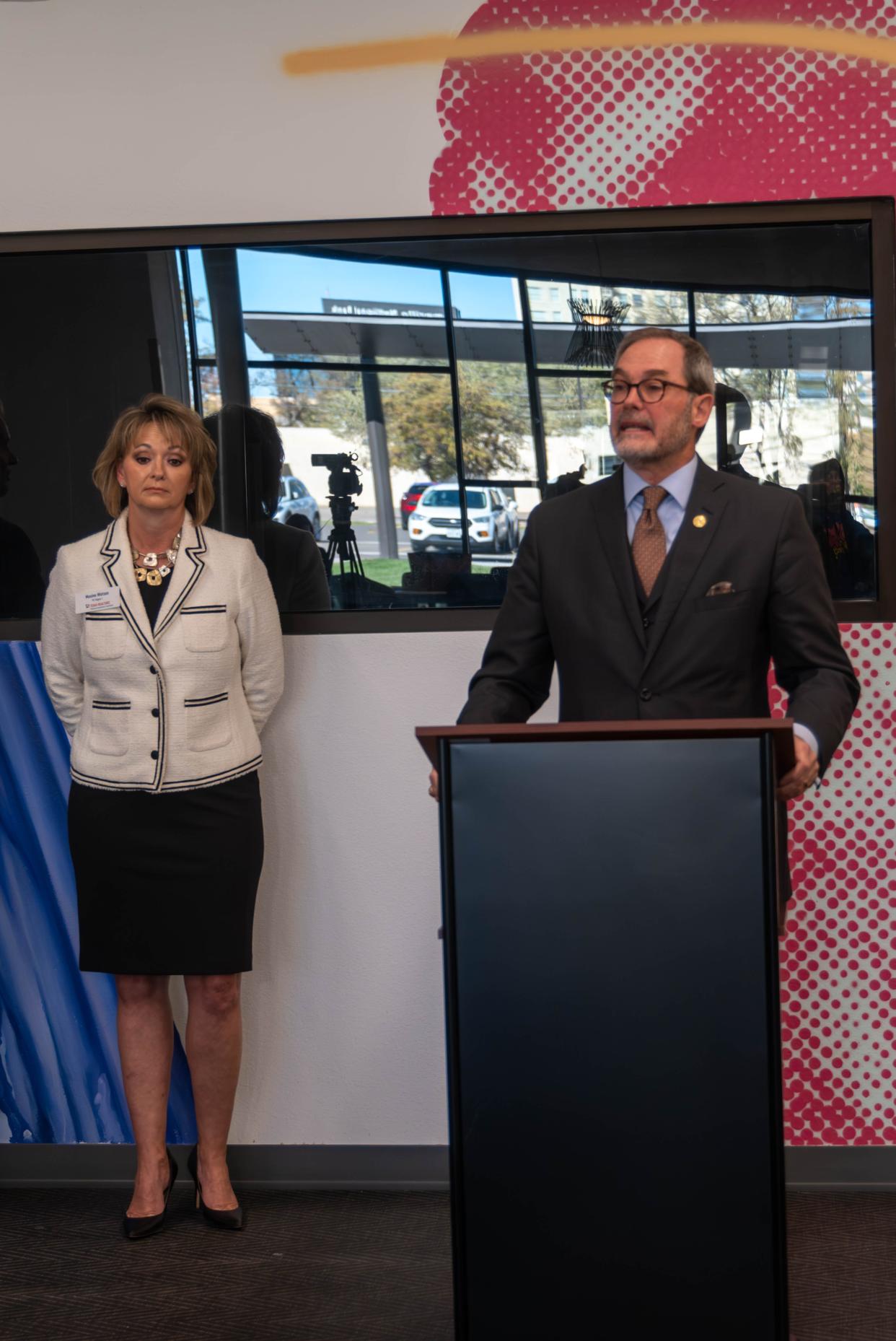Texas Sen. Kevin Sparks stumps for Broadband Infrastructure Fund passage
West Texas State Sen. Kevin Sparks and members of the Texas Broadband Now organization leant their voices in favor of a constitutional amendment to create the Broadband Infrastructure Fund.
During a news conference Friday at the Innovation Outpost in downtown Amarillo, the group advocated for the passage of Proposition 8, which is on Tuesday's election. It's one of 14 statewide constitutional amendments on the ballot. With this amendment to the Texas Constitution, money would be allocated by the state legislature to create a $5 billion fund to expand high-speed internet throughout the state. With this amendment, about $1.5 billion of the state’s $32 billion budget surplus would be used to create this fund if passed.

According to Texas Broadband Now, the funding will leverage another $3.3 billion of federal funding to the broadband fund, which is expected to include private funding as well. The federal funding is a part of the Infrastructure and Jobs Act passed in November of 2021. Sen. Ted Cruz, Sen John Cornyn, Rep. Jody Arrington and Rep. Ronny Jackson all voted against the act.
“This is a fiscally responsible way to address a very needed issue,” said Sparks, who represents Senate District 31 which includes Amarillo and portions of the Panhandle, South Plains and Permian Basin. “This will match up federal dollars that have already been allocated to the state of Texas. Hopefully, if we pass Proposition 8 with state dollars, we can leverage this along with private investment to get broadband to all of our rural communities.”
Advocates for the proposition say it will support the upgrade to 9-1-1 services with the latest technology, improve connectivity for schools and students, improve access to telemedicine and enable remote monitoring of patients in remote areas, reducing travel time and costs.

Those against the proposition say it does not prioritize lower-income communities for the expansion and development of high-speed internet. They say the funding, as it stands, would not provide high-speed internet access to all areas of the state and requires the buy-in of private investment that has yet to be fully expounded upon or finalized.
“Lack of broadband access can lead to inadequate healthcare,” Sparks said, noting all the online healthcare-related tools and resources available. “Broadband-powered telemedicine is one example of all that is possible with improved connectivity. This is critical in the 64 Texas counties that don’t have a hospital and the 25 counties that don’t have a single primary-care physician. Proposition 8 is vital to healthcare access in these areas.”
According to Texas Broadband Now, there are about 2.8 million Texas households and seven million state residents without adequate access to the internet, including only about one in six students that have access to high-speed internet.
When asked about how exactly the fund will bring broadband to the rural communities of the Panhandle and West Texas, Sparks said that the additional funding will make it commercially viable to get the lines to those communities and households.
“This is critical if we continue to allow these communities to grow and attract businesses and more citizens to these areas,” Sparks said. “This is a quality of life issue; we need broadband now to facilitate medical attention for our residents, to make sure our students have access to more learning tools and that our businesses have access to markets for their basic business needs.”
Sparks said it is critical the state plays its role in creating this infrastructure. He emphasized it would set back many communities in the state if Prop. 8 fails.
“There is no reason with the finances of the state currently, so there is no reason why we shouldn’t be making this push to get broadband to our rural communities,” Sparks said. “We have access to these federal dollars that we likely lose if we do not get this done expeditiously.”
This article originally appeared on Amarillo Globe-News: Texas Senator says Proposition 8 is critical for Texas Panhandle
